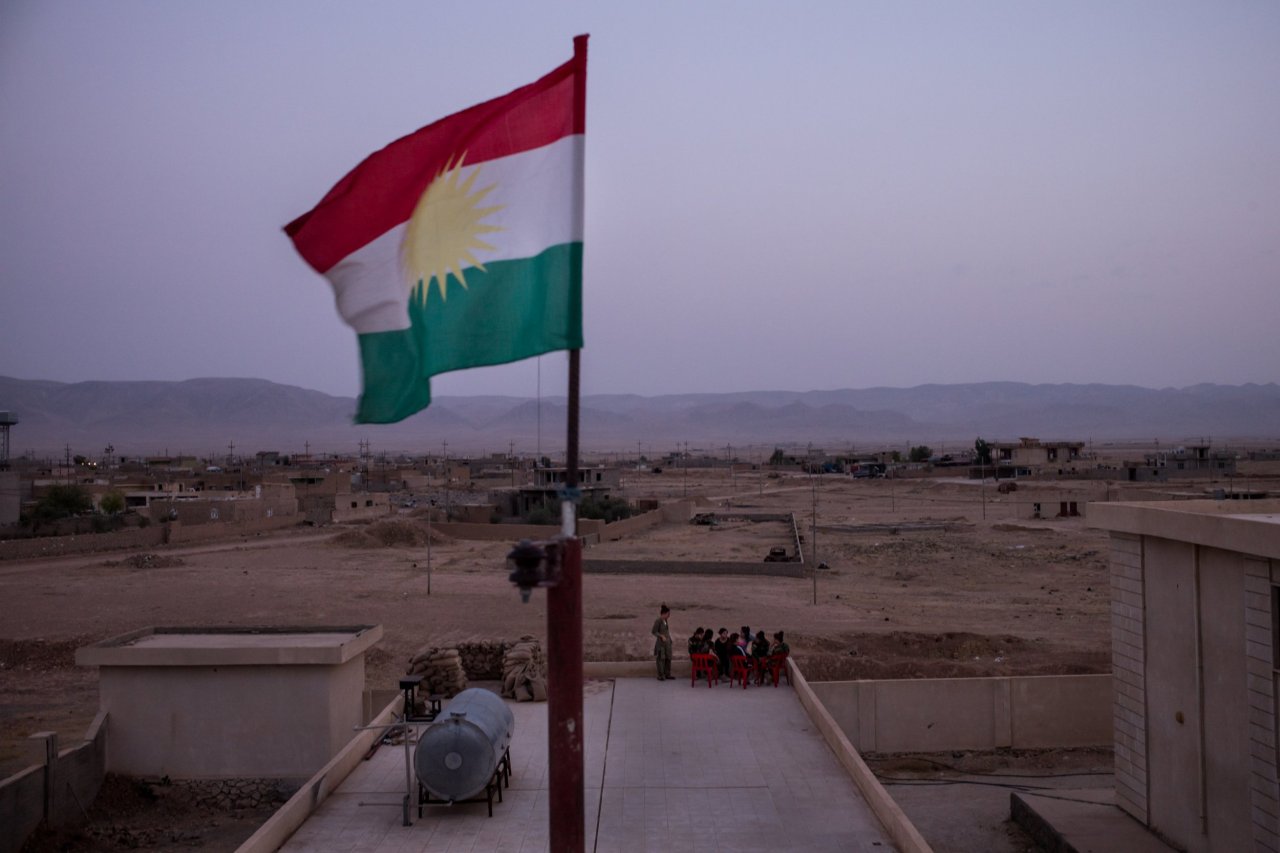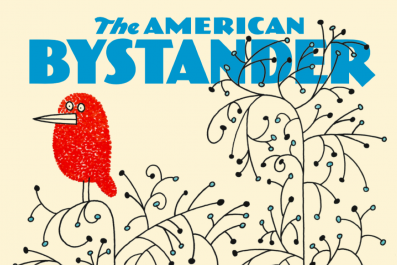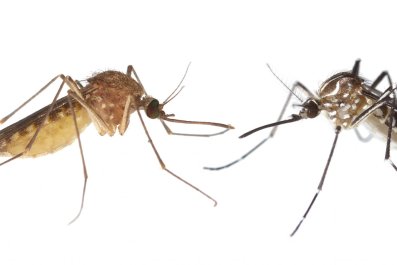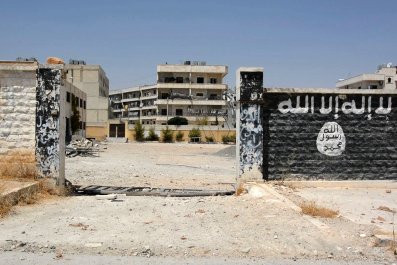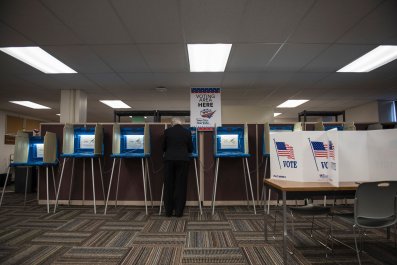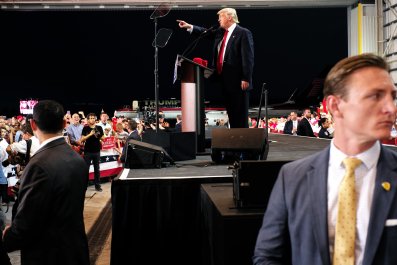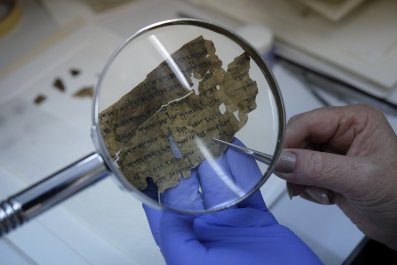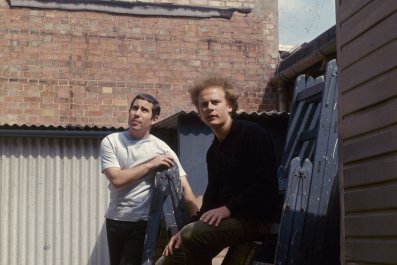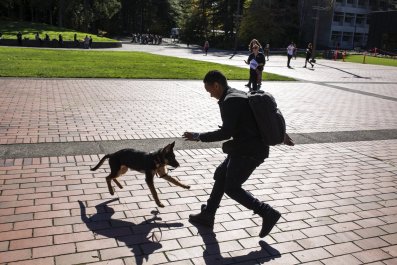Updated | "When America needs us, they call," the woman tells me. "But will they forget what we have done when we need them?"
Khota Kider is a commander of a female Kurdish brigade, and her question resonates here in Iraqi Kurdistan, on the front lines in the war against the Islamic State group (ISIS).
A stateless people of roughly 25 million, Kurds live in oil-rich parts of Iraq, Turkey, Iran and Syria. They're known for their skill on the battlefield, and they've long felt that other countries—especially the U.S.—use them as proxies, then abandon them when they're no longer needed.
Iraqi Kurds are expected to play a crucial role in the battle of Mosul, which began on October 17 and is being led by Iraqi forces with some help from the U.S. While some worry about another betrayal, most still hope their reward will finally be independence—or at least greater sovereignty. "The independence of Kurdistan is the right of our people," Nechirvan Barzani, the Iraqi Kurdish regional prime minister, told Voice of America last summer. "We will decide the extent of our borders by what has been liberated."
Unfortunately for the Kurds, it's not entirely up to them, and it never has been. Kurdish history is a litany of Western betrayals. In 1920, after World War I, Great Britain, France, Italy and the Ottoman Empire agreed to an independent Kurdish state. But just three years later, in a separate treaty, the Allies recognized Mustafa Kemal Atatürk's Turkey—leaving the Kurds without a home.
Since then, different Kurdish groups have tried, and failed, to form their own states. Case in point: Iraq. In the early 1970s, when that country was aligned with the Soviet Union, the Shah of Iran persuaded the United States to arm Iraq's Kurds to fight Iraqi dictator Saddam Hussein. Eventually, however, Iran withdrew its support, as did the United States, and once again the Kurds felt betrayed.
About a decade later, after Tehran's Islamic Revolution, and with Iran and Iraq at war, the U.S. began helping Baghdad, which meant indirect support for Hussein's long-running battle with Kurdish separatists. In 1988, during the final days of the conflict, Hussein's forces used chemical weapons and indiscriminate bombing to slaughter tens of thousands of Kurds.
Since the American invasion of Iraq in 2003, the country's Kurds have controlled a semiautonomous region in the north. This area has been relatively safe and stable compared with the rest of the nation, where sectarian violence has flared for more than a decade. And since the rise of ISIS, Kurdish peshmerga fighters have been the most competent and successful force battling the jihadi group in Iraq.
Syria's Kurds have also been successful against ISIS, especially in the battle for Kobani near the Turkish border; the Kurdish People's Protection Units (known by the Kurdish acronym YPG) fought for six months, driving out ISIS with the help of U.S. military strikes, and finally secured the town in March 2015. In Rojava, eastern Syria, the YPG—affiliated with the Kurdistan Workers' Party in Turkey and a mainly Kurdish alliance of rebels—has been governing itself in an autonomous region since the war began.
Now, two years after the fall of Mosul to ISIS, Iraq's Kurds hope to leverage a victory as well. If the coalition succeeds in Mosul, it could have significant consequences for them. An agreement signed with the U.S. includes financial support for the peshmerga fighters. Meanwhile, Masoud Barzani, president of the Iraqi Kurdistan region, has been heavily pushing for statehood. Since late last year, he has directed his party—one of the main Kurdish political groups—to work with its counterparts to prepare for a referendum on independence. That effort, however, is stalled, as the Kurdistan Regional Parliament has not sat since August 2015 because of a variety of internal economic and political issues, so Kurdistan cannot legitimately call for a referendum until that changes.
But even if Iraqi Kurdish leaders can settle their differences, some analysts, such as Dov Friedman—the former U.S. director for Middle East Petroleum, a British-Turkish energy company— argue that an independent Kurdistan north of Iraq would throw the region into greater turmoil. "How viable is a landlocked state that is dependent on exporting natural resources through a corridor plagued by violent conflict?" he recently wrote in Foreign Policy.
The Kurds know too well that their moment may come at a time of great chaos in the region. But they believe they're ready for statehood. Some analysts agree. But Peter Galbraith, a former U.S. ambassador who helped set up the oil industry in Iraqi Kurdistan after his career in government, says the Kurds in Iraq are better prepared for independence than the people of any other emerging country he has worked in—including Croatia, East Timor and South Sudan.
One reason: Despite political divisions among Kurdish groups, there is a strong consensus for statehood. A survey conducted in August by the American University of Kurdistan estimates that more than 84.3 percent of people in Iraqi Kurdistan would vote for independence.
There are also some signs of international support. U.S. Secretary of State John Kerry and Antony Blinken, his deputy, have recently traveled to the region for meetings with Kurdish leaders. And U.N. Ambassador Samantha Power devoted large portions of her 2002 Pulitzer Prize–winning book, A Problem From Hell, to the Kurdish genocide, and she was highly critical of Hussein's chemical warfare against the Kurds in Iraq.
The U.S. government, however, has not officially supported Kurdish independence in Iraq. Part of this is due to fears of greater chaos in the region. The other part has to do with Turkey. A NATO member that has been battling Kurdish separatists for decades, Turkey recently sent troops into Syrian territory ostensibly to help fight ISIS but also to contain Kurdish advances. Ankara worries that if Iraqi Kurdistan declares independence, Kurdish groups in Syria and Turkey would do the same, threatening Ankara's territorial claims as well as oil transportation routes within the country.
In August, Syrian Kurdish groups felt a familiar sense of betrayal when the U.S. supported Turkish military intervention and demanded the YPG, which had just captured a strategic town from ISIS, pull back east of the Euphrates River.
Galbraith says Iraqi Kurds have a much better relationship with Turkey than they once did; for the past 13 years, they have been exporting crude oil to Ankara in what's become a strategically important and lucrative arrangement for both sides.
But oil isn't a panacea for Iraqi Kurds; revenue is currently low due to the collapse in prices, and there are continued budget disputes with the Iraqi government. The result has been a loss in profit that, coupled with the cost of fighting ISIS, has drastically eroded Kurdish finances.
These obstacles, some analysts say, will likely delay Kurdish independence. "While there is no doubt that the Kurdistan region is heading toward successful self-determination," says Samuel Morris, a research fellow at the Middle East Research Institute, a think tank in Erbil, Iraq. "Kurdish independence, in the short term, is unrealistic."
Many Iraqi Kurds like Kider, the commander of the female brigade, don't see it that way. The time to act, they say, is now. That is, unless the U.S. abandons them once again.
With Sophia Slater in Paris
Correction: An earlier version of this story mistakenly stated that the Middle East Research Institute was based in Washington, D.C. It is based in Erbil, Iraq.



